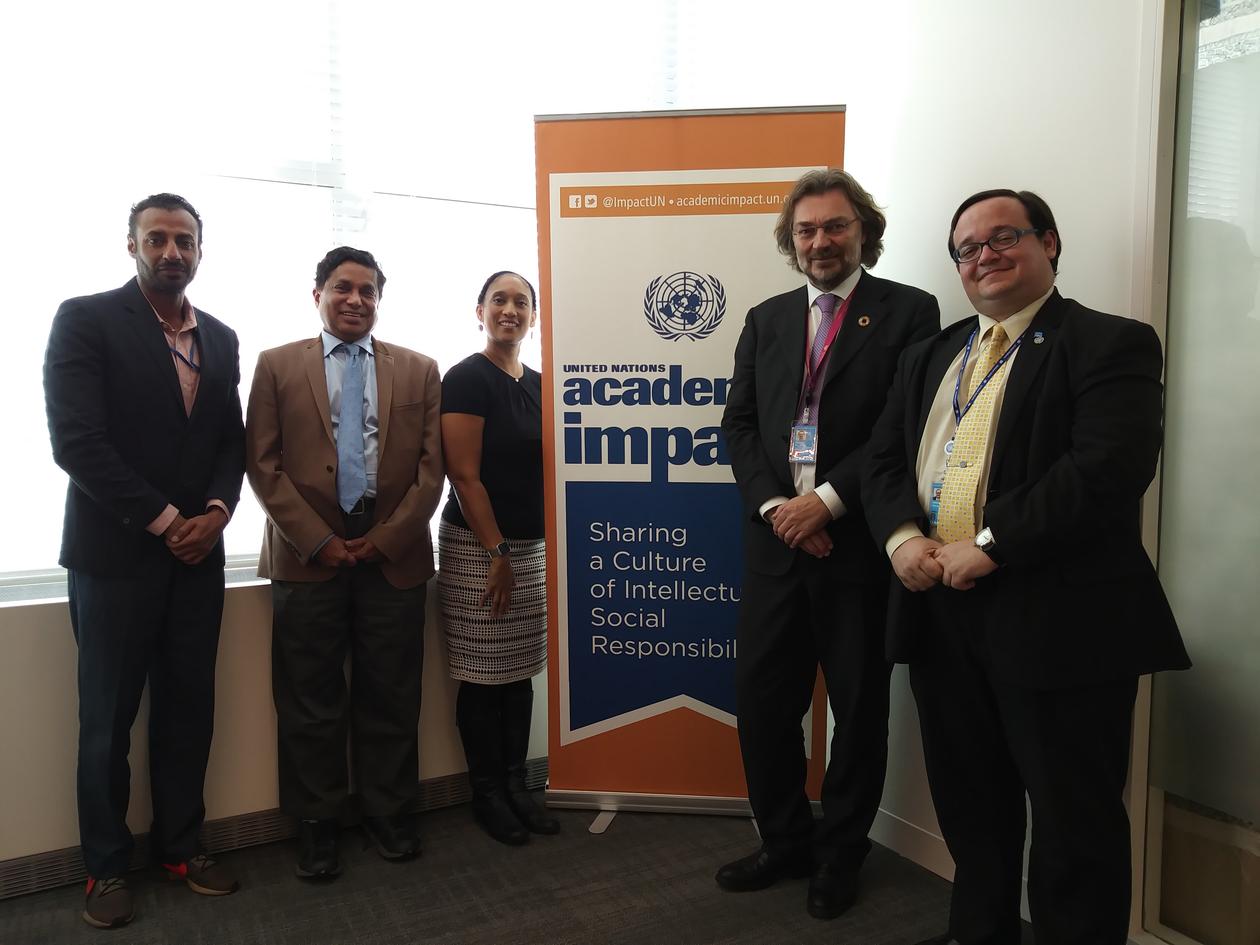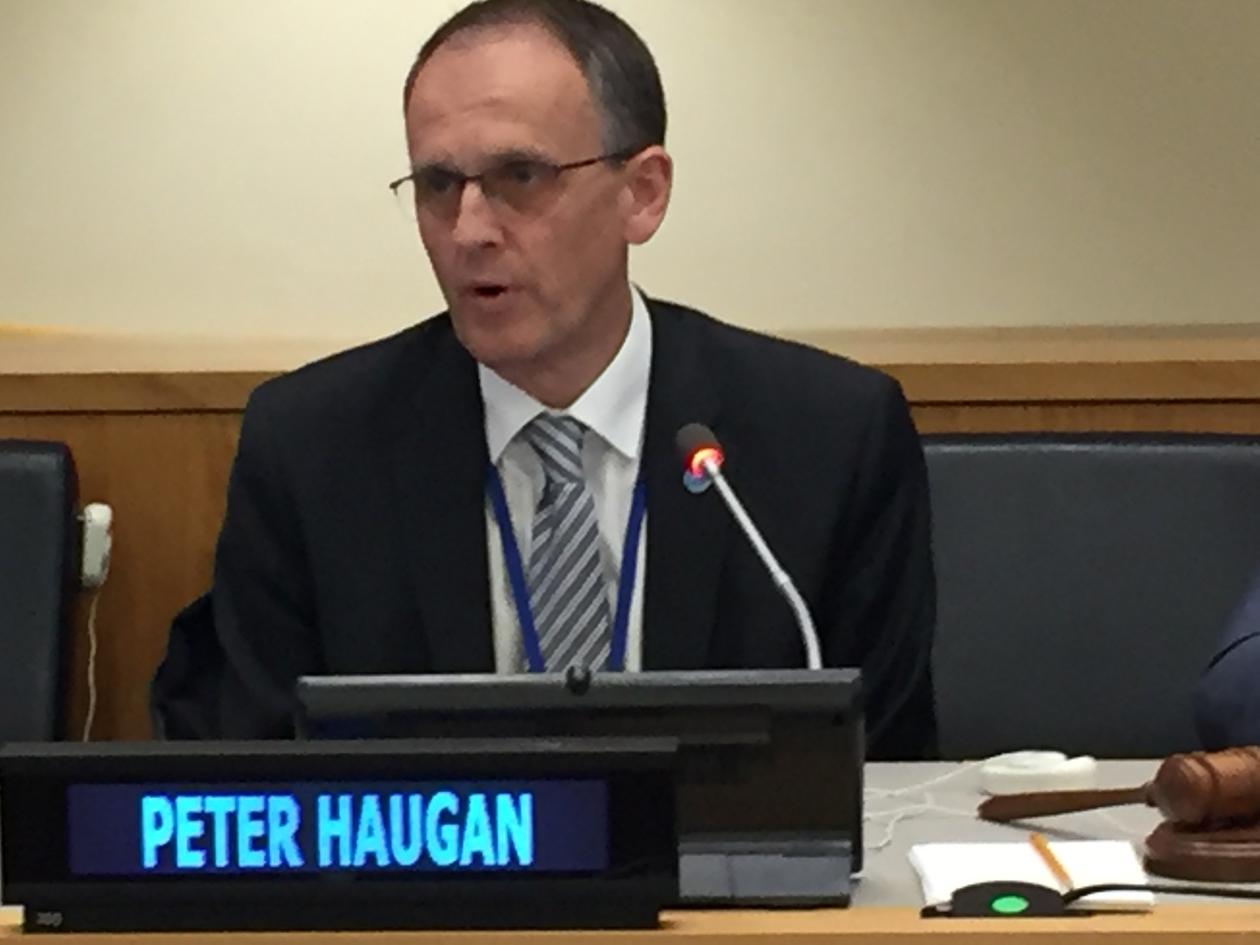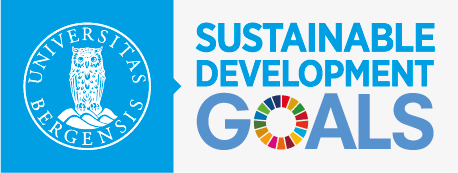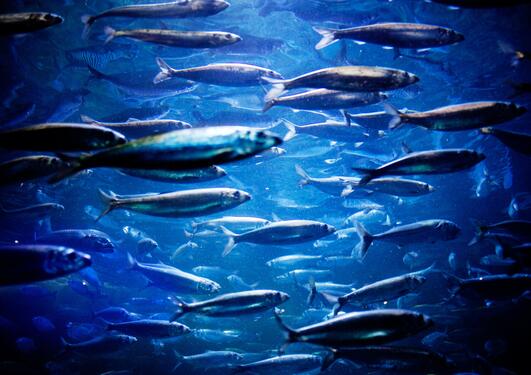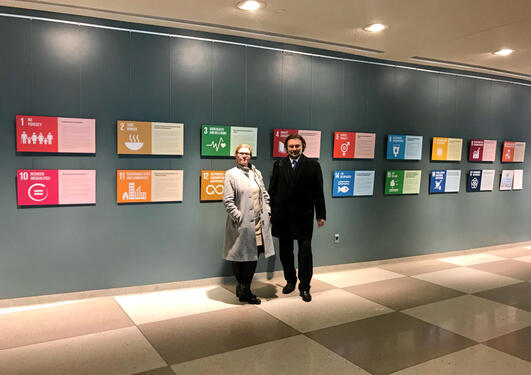UiB becomes official UN ocean science Hub
The University of Bergen has taken on a leadership role on SDG 14, Life below water, for United Nations Academic Impact, and will act to inspire and motivate partners worldwide to create greater knowledge towards a sustainable ocean.

Main content
On 24 October 2018 it was announced at the UN in New York that the University of Bergen (UiB) has become the official Hub institution for Sustainable Development Goal (SDG) 14, Life below water, for United Nations Academic Impact (UNAI).
“We are delighted to have been invited by UNAI to this prestigious role and look forward to working with them and other actors in the UN system to promote knowledge, research and education for a sustainable Ocean,” says Professor Edvard Hviding, who is the academic director of SDG Bergen, a strategic initiative by Rector Dag Rune Olsen and the UiB leadership.
The research centre Ocean Sustainability Bergen (OSB), a part of the SDG Bergen initiative, will handle the practicalities surrounding UiB's SDG 14 UNAI Hub role.
- Follow SDG Bergen on Twitter: @SDGbergen
Innovation and community engagement
UNAI has selected 17 universities worldwide for Hub status, one on each SDG, as “UNAI member institutions selected as exemplars for their innovative research, teaching and community engagement related to a specific Goal”.
“We have been selected for a three year term and look forward to using our expertise in the marine sciences to bring both current and future partners together to make sure that the implementation of SDG 14 is done with scientific knowledge at the core,” says Professor Peter M. Haugan, OSB's academic director, adding:
“Above all we look forward to interact with the other UNAI SDG Hub institutions to bring about the partnerships needed to reach all of the Goals by 2030.”
UiB was the first university in Norway to institutionalise the SDGs, primarily through SDG Bergen, OSB and the annual National SDG Conference Bergen. This work includes the establishment of the SDG Bergen Task Force, which runs the day to day operations related to scientific advice and science diplomacy at the university.
“Having a dedicated task force has helped us a lot in this work, as has working closely with the broad range of marine sciences found across the university. After all, marine science is one of three focus areas at the university,” says Hviding, pointing out that Bergen as a city always has been dependent on the Ocean and thus UiB was ideally positioned for UNAI's SDG 14 Hub status.
Higher education is key for SDG 14 success
The two SDG Bergen professors point to the crucial job that lies ahead for all universities and higher education providers in terms of engaging critically with the SDGs in the education offered.
“Our students are among the driving forces for sustainability and change towards a so-called green economy. At UiB we are currently in the process of evaluating how we can feature issues of sustainability across disciplines as part of our education,” says Haugan.
Haugan and Hviding have been driving forces behind UiB's pursuit of a more ambitious approach to critically engage with the SDGs. This includes unconventional and innovative measures, such as teaming up with Bergen-based tall ship Statsraad Lehmkuhl to create a study programme as part of a circumnavigation of the globe so as to educate future leaders on sustainability issues.
“This is only one of a number of measures the UiB is currently undertaking to critically engage with the SDGs. For us this all goes way beyond SDG 14. Our approach runs through SDG 17, Partnerships for the Goals, as we believe that to the reach the ambitions at the core of the Goals we need to work together in partnerships across borders and academic disciplines,” Hviding says.
